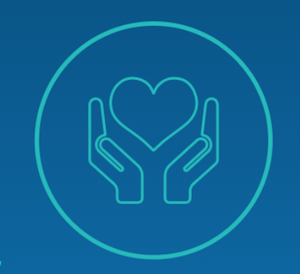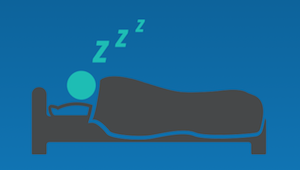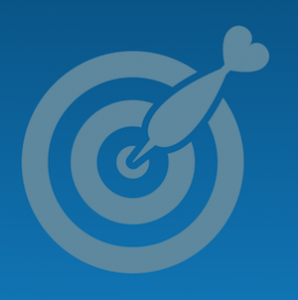A Freakonomics podcast from Nov 2017 discussed how productivity gains (and exponential ideas) were grinding to a halt (“Are we running out of Ideas?”). At the very least, the idea of endless productivity gains was called into question. If Moore’s Law may have held true for integrated circuits, the cost of that progress has risen disproportionately, meaning the economic value of those productivity gains has not been as easy to extract. If we are running out of ideas per se, there are yet many new technologies that will surely provide bountiful opportunities for productivity gains, such as AI, robotics, 3D printing (as Caleb and I went over in our book, Futureproof). All the same, the reality is that most large companies are struggling to unearth the productivity gains because of a host of other factors, namely softer matters around culture, people and organisation.
The Future of Productivity Lies…

Maybe it’s because my eyes are drawn to such statements, but I feel I often see t-shirts or signs with the slogan: The Future is Female (see left). It’s a term that was coined in 1975 and found a resurgence after a NYT article in 2015 entitled, “A feminist t-shirt resurfaces.” To my view, I tend to subscribe to the term that the future is feminine rather than female, because it’s more about the feminine characteristics and mindset (generalisations being what they are). This also includes the chance for men to have those same qualities and participate. As some of you will know, I studied Women’s Studies as a minor at university and the 12 courses I took certainly contributed to adjusting my viewpoint on many subjects. What “feminine” means is perhaps up for debate; but in my interpretation, feminine stands for the best in diversity, community, listening skills, emotional and social intelligence, and a less ego-centric world. And I think it’s true that the future needs more such attributes, but that certainly isn’t enough.
THE SOFTER APPROACH TO PRODUCTIVITY GAINS
If current business leaders have been programmed to drive innovation, eke out evermore profits and cut costs, we’re now in a world where transparency is shedding light on the way that businesses are getting those results. We can no longer gloss over poor ethics and practices with a shiny mission statement emblazoned on the lobby walls. To my mind, the bigger productivity gains lie in the space between those words: the human spirit and discretionary energy of the workforce.
PRODUCTIVITY THROUGH ESP
Whether it’s making the world a better place, unlocking potential in your business or improving the dynamics with those close to you, I fundamentally believe that these three ingredients, reframing the acronym E.S.P. (i.e. not Extrasensory Perception), provide the most under-exploited, untapped opportunities for business to drive productivity and performance. ESP stands for: Empathy, better Sleep and Purpose.

- Empathy: the art of not focusing only on yourself. Empathy is the bedrock of a culture that accepts diversity. In business, it’s also the best way to uncover the deepest motivations of your staff. And it’s absolutely fundamental to being more customer centric. Furthermore, empathy can/will be connected to performance. In the State of the Workplace Empathy study 2018 by Businessolver, it reveals that “87% of CEOs see a direct link between workplace empathy and business performance, productivity, retention and general business health.” What can your company do to encourage more empathy throughout the organisation? This is the subject of an upcoming white paper of mine! Stay tuned. In the interim, check out this post: The 5 Best Ways to Improve Your Empathic Abilities.

- Sleep: the art of having the right energy. Our days are often informed by the sleep we had the night before. We spend so much time in a cognitive mode and driving efficiencies and effectiveness in our daily operations, business leaders don’t want to submit to their emotional state or whine about sleep deprivation. But, this is a big mistake. Why don’t all Learning For Development programmes include a module on sleep? After all, for the 1/3 of our day when we sleep, it heavily impacts the other 2/3. Sleep is when your brain eliminates toxic proteins that impair your ability to think. As this INC article by Dr Travis Bradberry says, sleep deprivation affects “your mood, ability to focus, and access to higher-level brain functions for days to come. The negative effects of sleep deprivation are so great that people who are drunk outperform those lacking sleep.” So, my injunction to business leaders: do right by making good sleep an integral part of your culture. For example: Include a module in your Learning for Development on what sleep is and how to sleep better. Add sleep pods at work and encourage naps!

- Purpose: I like to define purpose as the art of considering the welfare of the whole. As explored in this 2013 HBR article, having purpose is not an idle “leftie- leaning” thought. It’s also a strong motif for success. From 1996–2011, 18 publicly traded companies, identified as “firms of endearment” and wielding a genuine purpose, provided 10.5x higher returns versus the S&P500 over the same period. So I ask: What’s your company’s purpose? How would the world be worse off without you?
EI VERSUS IQ?
Ever since Howard Gardner’s 1983 pioneering book, Frames of Mind: The Theory of Multiple Intelligences, that details nine forms of intelligence, we now understand that we can be intelligent and yet not be good at Maths or English at school. Some people are certainly better than others at certain forms of intelligence, of which has its power. While it’s not about rational (IQ) versus emotional intelligence (EI), it’s true that it’s hard to be intelligent on all fronts. Thus, it’s about having a weighting. If logic were a proxy for rational intelligence (i.e. logical-mathematical according to Gardner) and empathy for emotional intelligence, brain scans find that the two modes are, in fact, mutually exclusive. A 2012 study published in NeuroImage spelt out that separate neural pathways are used alternately for empathic and analytic problem solving. Ultimately, it’s about creating a team that has enough of each, according to the company culture, business segment and strategic challenges.
THE HIGH VALUE OF EMOTION
Research shows that Intelligence Quotient (IQ) determines what job you can get and hold; Emotional Intelligence (EI) predicts how well you will do in that career — whether you have the motivation and social abilities to be a star performer or leader. Dr Annie McKee, in an interview on Telos, said, “[s]uccessful people have higher self-awareness and know what will motivate or demotivate them[selves]. They also are able to avoid bursts of emotions. Better social awareness makes them more tuned to the political undercurrents in an organization.” All of these qualities, importantly, help figure out how to drive change, so vital to businesses everywhere.
THE FORCE OF ESP
Empathy, sleep and purpose share one common link: when genuine, they procure positive energy. Being more empathic, getting the right sleep and knowing why you exist, are powerful drivers. By bringing more ESP into your workplace — and into your life — I truly believe performance and joy will follow more easily. It is my profound conviction that each quality, if brought into the organisation, will provide the greatest untapped, even boundless, gains in productivity and performance.
BEING FULLY PURPOSEFUL
As a valued friend once said to me: there’s nothing as powerful as congruency. When you are all singing from the song sheet, the sound of the choir is elevated. The elevation that I want from this particular concept of ESP has a purpose unto itself. It’s this: the world needs more Empathy, Sleep & Purpose. With deeper empathy, better sleep and a rallying purpose, the world would be far improved place; and, I believe, business is perfectly suited to contribute to making this change come about.
Your thoughts and reactions are entirely welcome.
***If you like my writing and are interested in fostering more meaningful conversations in our society, please check out my Dialogos Substack. This newsletter will feature articles on why and how we can all improve our conversations, whether it’s at home, with friends, in society at large or at work. Subscription is free, but if you see value in it, you are welcome to contribute both materially and through your comments. Sign up here:











Trackbacks/Pingbacks